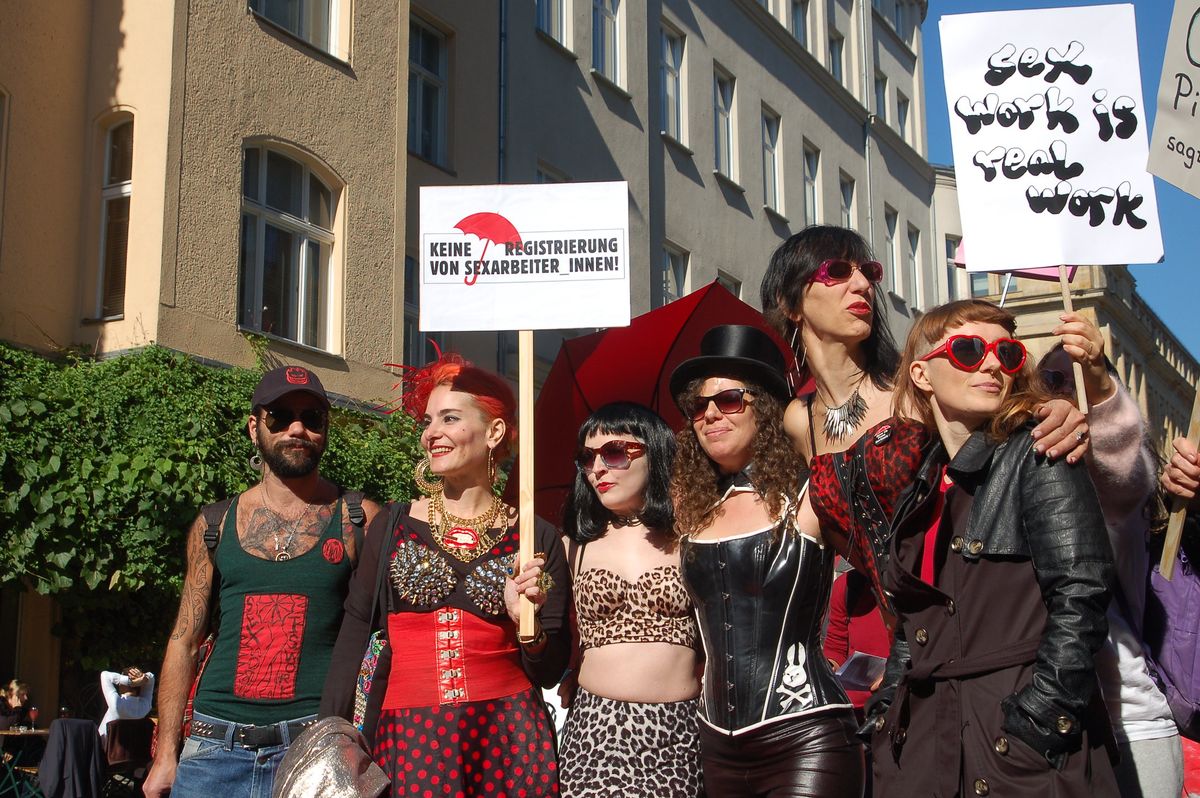Vermont the Latest in a Wave of Bills to Decriminalize Prostitution
What this would really mean for women

A group Progressive and Democratic female lawmakers have introduced a bill to the Vermont state legislature which would decriminalize prostitution for all adults. The bill, H.569, is due to take effect on July 1st if passed. It is currently under review in the judicial committee.
The bill was introduced by Rep. Selene Colburn, P-Burlington, and is co-sponsored by Rep. Diana Gonzalez, P-Winooski; Rep. Maxine Grad, D-Moretown; and Rep. Emilie Kornheiser, D-Brattleboro.
If the bill passes, Vermont would be the first state to legalize prostitution. Currently, prostitution is only legal in the United States in a few counties in Nevada. Similar bills were also recently introduced in New York state, Maine, Massachusetts, and Washington, D.C. — none of which have yet passed.
Vermont lawmakers have attempted to maintain protections for those who are coerced or trafficked into prostitution, and minors. Rep. Colburn has argued that this bill will make prostitution safer for those being sold, and prevent underground black markets.
“By driving sex work underground, we’re creating much more dangerous conditions for sex workers,” Rep. Colburn said. “They should feel like they have the protection of police if they need it.”
Vermont, with the second-smallest population in the country, is currently suffering from a struggling economy and a shrinking tax base. The move could bring renewed interest to Vermont as a tourist destination, according to IBTimes. Sex is a lucrative industry.
Colburn has argued that prostitution is sex between two consenting adults, just with additional terms involved, and that is not the job of the state to regulate what consenting adults do. “The underlying question is do we need to criminalize consensual sex between adults on any terms?”
Colburn’s perspective is common among white middle-class liberals who are kept at a safe distance from the reality of prostitution — the buying and selling of human beings for (male) sexual pleasure. The common chant among decriminalization advocates is “listen to sex workers,” yet, it’s clear that only the most privileged (white, middle class, or male) voices are being heard. The voices of women in poverty, largely women of color, who turn to prostitution as a means of survival, or are coerced into it (often by a partner), are silenced, ignored, and written off unless they support the mainstream liberal narrative, as is the experience of those who work directly with these women. A 2015 article by Helen Lewis in The Guardian pointed out the irony of this approach:
“Unsurprisingly, women who experience prostitution as little more than paid rape will do everything they can to leave the trade. But that means they’re not sex workers any more. So — hey presto — their opinions can be discounted. We end up in a “no true Scotsman” situation that skews the answers we get; only people with an overall positive view are permitted to talk about that industry.”
The reality is that consent in prostitution is complicated, at best, and nonexistent at worst. Framing prostitution as a consensual transaction, as a “job,” misses the violence, coercion, and human rights violations that are inherent to the “work.”
Although the research is not robust, current data suggests that nearly half of those involved in prostitution were first sold as minors. In an interview with The Atlantic, Emi Koyama discusses what drives people to prostitution:
“Most of the young people in the sex trade come from families affected by poverty, racism, abuse (including homophobia and transphobia in families), parental imprisonment or deportation, or from broken child welfare systems, and do not have safe places to return to. In fact, many young people are trading sex as a way to escape from violence and abuse that they have experienced in their homes and child welfare systems.”
Violence in prostitution is unlike any other job. A study that took place across nine different countries found that 64% of prostituted had been threatened with a weapon, 73% were physically assaulted, and 57% had been raped (which, in this context, means unwanted sex for which they were not paid). According to HG.org:
“Prostitution is one of the most dangerous professions in the country; worse than Alaskan fisherman, or loggers, or oil rig workers. According to recent statistics, the death rate for prostitutes in the U.S. is 204 out of every 100,000. For fishermen, it is 129 out of every 100,000.”
Prostituted people in Canada, Colombia, Germany, Mexico, South Africa, Thailand, Turkey, the United States, and Zambia reported that they wanted to escape prostitution at a rate of 89%, but they did not have other options for survival.
The study replicated the findings that over two-thirds of individuals (68%) met the diagnostic criteria for PTSD. None of this is new information. We’ve known about the harms of prostitution for decades.
Treating prostitution like any other consensual activity is a gross misrepresentation of reality. Consensual sex doesn’t involve unwanted violence. Consensual sex doesn’t happen just so you can pay rent or feed your kids. Consensual sex does not leave you with PTSD at rates higher than combat war veterans.
The majority of prostitutes in Germany, where prostitution is legal, stated they did not believe legalization made them any safer from rape or physical assault. Despite the claims made by Colburn that legalization would drive down demand for trafficking, according to Nordic Model Now, “Researchers from the LSE did a study of 150 countries and found that there’s more human trafficking where prostitution is legal/decriminalised. A study for the European Parliament came to the same conclusion, and so does economic theory.”
Legalizing prostitution would be exactly the opposite of what liberal legislators claim, since legalization leads to increased demand:
“There aren’t enough women to fill this increased demand, because women who have genuine choices don’t generally choose to go into prostitution. This means that those who want to cash in on this extra money have to use coercion, force, trickery, or taking advantage of (mostly) young women’s vulnerabilities to recruit and retain women and girls in prostitution. This fits the United Nations definition of sex trafficking.”
Yasmin Vafa, executive director of Rights4Girls, called the new bills “A sex trafficker’s dream” in an interview to the New York Times:
“This will cause more harm and more exploitation of our most marginalized people. Girls have told us they heard about the bill for the first time from their pimps, who were excited about it. If pimps and sex buyers are on the same side of this legislative proposal, doesn’t that say something to the other supporters?”
Yet, the Vermont lawmakers do have some things right. Women, girls, and other victims of prostitution should not be criminalized for what they have had to do to survive. Prostitutes are not criminals — they are people in need of services who should have the same rights to safety and dignity as anyone else.
Vermont legislature also introduced a bill that would grant limited immunity for prostitution and drug charges to anyone who witnesses a crime due to their involvement in prostitution or human trafficking. Bills like this, which provide legal protections to victims while not creating a legal shield for the perpetrators of violence, are what we really need to keep women safe.
A system that criminalizes the buying of sex, but decriminalizes those who are bought while providing support and services is called the Nordic Model. This model recognizes that consent can not be bought and sold, that the industry is inherently coercive and violent, and that women and children are not commodities but rather human beings who deserve safety and dignity. If progressives really want to help those in prostitution, they should probably reconsider their tactic of capitulating to the pimps and punters who abuse women and children.
The generous support of our readers allows 4W to pay our all-female staff and over 50 writers across the globe for original articles and reporting you can’t find anywhere else. Like our work? Become a monthly donor!
Enter your email below to sign in or become a 4W member and join the conversation.
(Already did this? Try refreshing the page!)





Comments